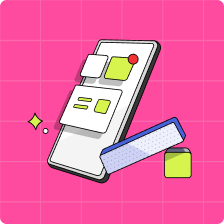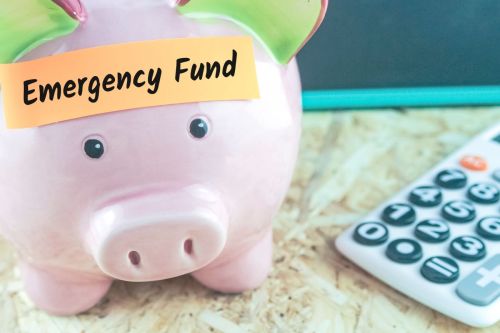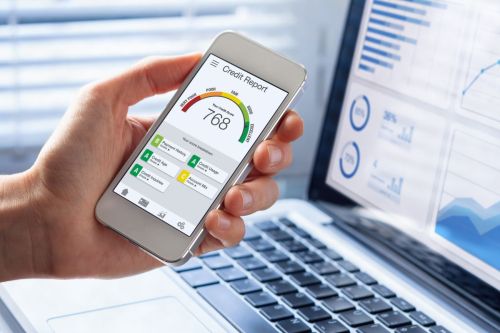Getting a first credit card is a huge milestone. With it comes new freedoms like ordering must-have items online, building good credit so you can secure an apartment in the future, and maybe even collecting points for travel. But it’s also a new responsibility that may harm your credit score and create debt if you’re not careful with your spending.
Trying to decide if you’re ready? This guide will teach you the benefits and risks of having a credit card plus how to get a credit card for the first time, covering things like credit card application requirements and what to consider so you can find the best credit card for teens.
Key takeaways
- You must be 18 or 19 (depending on where you live in Canada) to apply for a credit card.
- There are pros to having a credit card (like improving cash flow, building credit, and earning rewards) and cons (like accruing debt and potentially harming your credit score).
- Before you apply for a credit card, compare different cards. Look at factors like interest rates, fees, protections, limits, and rewards.
- To apply for a credit card in Canada, you may need to be a Canadian resident, have a certain level of income, or have a good credit score.
- If you don’t have a credit score (because you’re young or new to Canada) or have limited income, you may still be eligible for a student card, a secured card, or a card with a co-signer.
- The Mydoh Smart Cash Card is a great no-risk alternative to a credit card for teens.
How old do you have to be to apply for a credit card?
Before you can apply for your first credit card in Canada, you have to reach the age of majority (that’s the age when you’re legally considered to be an adult) in your home province or territory.
The age of majority is 18 in these provinces:
- Alberta
- Manitoba
- Ontario
- Prince Edward Island
- Quebec
- Saskatchewan
The age of majority is 19 in these provinces and territories:
- British Columbia
- New Brunswick
- Newfoundland and Labrador
- Northwest Territories
- Nova Scotia
- Nunavut
- Yukon

Risks and benefits of credit cards
There are pros and cons to having a credit card. Whether or not you should submit a credit card application will depend on a few things, like your financial situation, financial habits, and level of responsibility.
Benefits of credit cards
Here are some of the benefits of opening your first credit card:
It makes it easy to track spending
Credit cards break down every purchase you make on your statement or in your bank’s app. You just need to check your account to know exactly where you spend your money each month.
It helps with cash flow
Unlike payments you make with your debit card, credit card payments don’t come directly out of your bank account. Instead, you have a grace period (usually 21 days) before you need to pay the money back. If you’re waiting on a paycheque, a credit card could give you a bit of flexibility with spending.
It helps you build a credit history
As soon as you have a credit card, you start building your credit history. A long credit history with a good credit score will give you a better chance of renting an apartment or securing a job. It also means you’ll likely get better rates on car loans and mortgages in the future.
Enjoy rewards
Many credit cards offer perks on every dollar you spend. Depending on the card, you may get cash back, travel rewards, or in-store rewards.
Risks of credit cards
If you’ve never had a credit card, you should be aware of some of the risks associated with them before applying for a card of your own.
Accumulate too much debt
Credit cards tend to have high interest fees—usually in the neighbourhood of 20 per cent. If you miss a payment or don’t pay off your balance in full every month, you’ll end up paying more for every single thing you buy thanks to interest, and it could become easy to rack up more debt than you can handle. (Learn more about how interest works here.)
They can harm your credit score
If you miss payments or have a high credit utilization rate—which refers to how much of your total available credit you use—you could hurt your credit score. The recommended credit utilization limit is 30 per cent. So if your credit limit is $1,000, for instance, be mindful that $300 is the recommended credit utilization limit. Applying for too many credit cards too close together may also harm your credit score. It makes it look like you’re desperate for credit and are trying to live beyond what you can afford.
There’s a potential for fraud
If anyone steals your physical credit card or card info, you may end up paying for unwanted purchases. It’s your responsibility to keep a credit card secure by keeping your personal identification number (PIN) and security code (the number on the back of your card) private, tracking your spending through your online account, and reporting any charges you don’t recognize to your financial institution.
Don’t fully understand the concept of credit versus debt? This debt primer can help.
What should you look for in your first credit card?
You’re going to have a lot of options when you first apply for a credit card in Canada. Here are some things to consider before you make a choice:
Competitive interest rates
The average annual percentage rate (APR) for a credit card in Canada is 19.99 per cent. Some cards go higher (say, 29.99 per cent), while some low-interest credit cards could have rates as low as 4.99 per cent. A competitive rate for someone with good credit is anything below 14 per cent APR. If your credit score is excellent, you should be able to get a low interest rate. Watch out for introductory offers, since some cards may increase your interest rate after a few months.
Learn the difference between interest you earn and interest you pay in this guide to interest rates.
No or low fee
Some cards come with a fee (and, potentially, a reward that counterbalances the fee). Other cards have no fee. If rewards are worth the fee to you, then go for it. But you may also be able to find a card with similar perks that has no annual fee attached. Keep in mind that any credit card will probably charge fees for foreign transactions, late payments, balance transfers, cash advances, and spending over your limit. (But if you never do these types of transactions, always pay on time, and spend within your limit, you’ll be fine!)
Student credit cards
Some credit cards are designed specifically for students who have no credit history, and these are sometimes the best credit cards for teens. They often have similar rewards and protections to other cards but may have lower spending limits.

Consumer protections and insurance
Your card may provide purchase protection for a limited time on certain new items that you buy with your credit card, like a cell phone or computer. There are exceptions on some categories, like food, beverages, and pets.
Some cards also come with other types of protection and insurance for travel (like trip cancellations, travel accidents, and lost or stolen baggage) and car rentals or extended warranties on some purchases. Make sure you read the fine print to confirm before you book your next trip!
Low limit
A limit (i.e., the amount you’re allowed to borrow at one time) of only a few hundred dollars may work in your favour. If you keep it paid off, it will build your credit history while preventing you from spending a huge chunk of money (and potentially landing yourself in debt).
Rewards and cashback
Some cards come with perks like a sign-up bonus, a percentage of cash back on the money you spend, points toward flights, car-rental insurance, or bonus points on purchases like groceries or gas. These bonuses may make an annual fee with it to you if you spend enough on the card to earn them—especially if you’d already be buying things that earn you bonuses, like flights or gas.
Think you’ll feel tempted to overspend just so you can get free stuff you don’t need? A rewards card might not be the right fit for you. First, figure out the difference between your needs and wants and how you can feel less tempted to splurge.
What do credit card companies look for when approving an application?
Aside from your age, which must be the age of majority or above, there are a few other credit card requirements in Canada that any financial institution will consider before they approve you:
Residency status
You must be a Canadian citizen or resident to apply for a credit card. If you only have temporary residence status, you may still be able to get a credit card but your application may require extra info and could take longer to review.
Employment status and gross annual income
Whether you are a post-secondary student, have a part-time job, or are working full-time, the credit card provider will want to know. Some credit cards also have minimum income requirements.
Credit history
Your financial institution will take a look at your spending backstory, which could impact what kind of credit card you can get your hands on. A basic starter credit card or secured card (where you deposit a sum of money onto the card before using it) might be your only options if one or more of the following apply to you:
- You’re new to the country and have no Canadian credit history
- You’re young and this is your first credit card application
- You’ve declared bankruptcy within the past six or seven years
- You’ve only been an authorized user on someone else’s credit card (say, a parent or spouse) and haven’t built your own credit history

What do you need to apply for a credit card in Canada?
Whether you apply for a credit card online or in person, you’ll need to have some information on hand. Gather the following info to be fully prepared upfront:
- Full legal name
- Date of birth
- Email address
- Current Canadian address
- Social insurance number (SIN) or other government-issued identification number
- Employment details (job title and your employer’s contact information)
- Income information (pay stubs) or an estimate if you work part-time
If you apply in person, make sure you bring documents that confirm all of the above.
How to apply for a credit card
Applying for a credit card is pretty simple. Follow these steps:
1. Consider your credit card eligibility limits based on your residency status, income level, and credit score. To check your credit score, you can generally apply to TransUnion or Equifax for a free report once per year.
2. Compare credit cards online based on interest rates, fees, protections, and perks as well as your eligibility. Many financial institutions have comparison charts on their website. You’ll probably have limited choices for your first credit card.
3. Gather your personal information, including ID, SIN, proof of address, etc.
4. Apply online or in person at your financial institution.
How long does it take to get a credit card?
You might get approved for a shiny new credit card in minutes, or it could take a few days, especially if you apply online outside of business hours or if the credit issuer needs more information. Once you’re approved, you should get the card in the mail within seven to 10 business days.
What if your credit card application is denied?
Don’t feel bad if your application gets denied. These things happen! The most common reason: Your credit score is too low for the card you wanted. It could also be due to your income level, residency status, or information in your application that doesn’t match your credit report.
If you’re denied, there are a couple of things you can do:
- Apply for a different card with lower income or credit score requirements, like a student card.
- Apply for a secured card (since most people are approved if they can pay the deposit) and build up your credit score, then reapply for the unsecured card of your choice in a couple of years.

Other credit card options
If you’ve been denied for a credit card or you’re worried you’re not ready for this financial responsibility, there are some other options:
Become an authorized user on a parent’s card
If your parent authorizes you to use their credit card, this means you can spend up to their credit limit and all of your purchases will go on the same statement. With this option, it may be hard to tell who spends what. Plus, you’re missing out on time to build up your own positive credit score.
Have a co-signer on your credit card
Having a parent or guardian with good credit act as a co-signer on your credit card will increase your chances of getting approved. It will be your own credit card, and you will have a chance to build credit this way. But if you cannot pay back the funds, the co-signer will ultimately be responsible for your debt.
Get a secured credit card
Typically an option for someone with no credit (such as a teen, a newcomer to Canada, or someone who recently declared bankruptcy), a secured credit card requires a deposit. If you fail to make your payments, the financial institution will use the deposit to help cover what you owe. A secured credit card can help you build credit or improve a bad credit score so you can get an unsecured credit card in the future.
Difference between a Smart Cash Card and a credit card
The Mydoh Smart Cash Card is an alternative to a credit card with some of the same flexibility, but there are notable differences, too.
How the Smart Cash Card is similar to a credit card:
- It can be used anywhere Apple Pay is accepted and can be used to make purchases online.
- You can track your spending on your phone in the Mydoh app.
How the Smart Cash Card is different:
- The Smart Cash Card is reloadable, just like a secured credit card.
- As you need to pre-pay, you won’t go into debt with the Smart Cash Card.
- You won’t build credit, but you also won’t damage your credit score with a high debt ratio.
If you’re not ready for your own credit card and you’re under the age of majority, the Mydoh Smart Cash Card is a risk-free option that can give you freedom to shop online and get you in the habit of tracking your spending.
The bottom line
You’ve probably heard the phrase “With great power comes great responsibility.” This also applies to credit cards. When used well, they can make shopping and paying bills a little bit easier, build credit to help you in the future, and sometimes bring you fun rewards. When used poorly, though, credit cards can build a big pile of debt—fast.
Before you apply for a credit card, make sure you’re ready to take on the responsibility. And if you’re not there just yet, that’s OK, too. Wherever you stand, Mydoh can help you learn more about money so you can take control of your finances, both now and in the future.
Download Mydoh and help build the foundation of financial literacy for your kids and teenagers.
This article offers general information only and is not intended as legal, financial or other professional advice. A professional advisor should be consulted regarding your specific situation. While the information presented is believed to be factual and current, its accuracy is not guaranteed and it should not be regarded as a complete analysis of the subjects discussed. All expressions of opinion reflect the judgment of the author(s) as of the date of publication and are subject to change. No endorsement of any third parties or their advice, opinions, information, products or services is expressly given or implied by Royal Bank of Canada or its affiliates.














